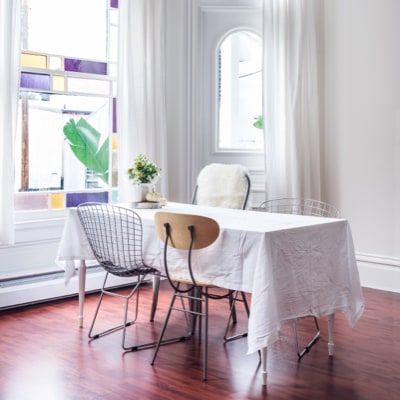SIL accommodation in Liverpool is designed to support people with disabilities who require a higher level of assistance to live as independently as possible. Short for Supported Independent Living, SIL provides round-the-clock support within a shared home setting, helping participants develop life skills and engage more fully in the community. As Liverpool continues to grow as a major service hub in Western Sydney, access to quality SIL accommodation in Liverpool plays a key role in supporting NDIS participants who need help with daily tasks while living outside institutional care.
What Is SIL Accommodation?
SIL — or Supported Independent Living — refers to housing where support workers assist residents in their daily lives:
- Personal Care Assistance : Help with showering, dressing, and medication management is provided based on individual needs.
- Household Management Support : Residents receive guidance with cooking, cleaning, laundry, and budgeting to build independence over time.
- 24/7 Staff Presence : While not all SIL homes have staff awake around the clock, trained support workers are available throughout the day and night.
- Skill Development Focus : The goal of SIL is to foster personal growth, so support plans often include skill-building activities.
- Shared Living Environments : Most SIL arrangements involve multiple residents sharing a home, promoting social interaction and peer learning.
These features distinguish SIL from other forms of disability housing by blending independence with structured support.
How Does SIL Differ from Other NDIS Housing Models?
Understanding how SIL accommodation in Liverpool compares to other models helps participants choose the right option:
- SIL vs SDA (Specialist Disability Accommodation) : SDA refers to physical housing modifications, whereas SIL focuses on the support aspect within any given home.
- SIL vs Respite Care : Respite is temporary, while SIL is long-term and integrated into daily routines.
- SIL vs In-Home Support Services : These services allow individuals to remain in their own homes, whereas SIL involves moving into a supported residence.
- SIL vs Group Homes : Some group homes offer similar structures but may not follow the formal NDIS SIL funding categories.
- SIL vs Independent Living : SIL includes active support, unlike independent living, which assumes full self-reliance without daily assistance.
Each model serves different levels of need and personal capability.
What Are the Key Features of a Good SIL Home?
Quality SIL accommodation in Liverpool should be tailored to promote both safety and autonomy:
- Well-Located Properties : Proximity to transport, shops, health services, and recreational facilities enhances accessibility and engagement.
- Accessible Design and Layout : Homes must accommodate mobility aids, visual supports, and other adaptations that suit resident needs.
- Structured Daily Routines : Mealtimes, hygiene schedules, and activity planning contribute to stability and consistency.
- Trained and Consistent Support Workers : Regular staffing improves trust and communication between residents and carers.
- Community Integration Opportunities : A good SIL provider encourages participation in local events, employment, and social groups.
These elements ensure that residents feel secure while also developing greater independence.
How to Access SIL Funding Through the NDIS?
Securing SIL accommodation in Liverpool requires navigating the NDIS system effectively:
- Eligibility Assessment : Participants must demonstrate a need for high-level support that cannot be met through standard NDIS packages.
- Inclusion in NDIS Plan : SIL funding falls under the ‘Assistance with Daily Tasks’ category and must be included in approved plans.
- Provider Selection : Not all registered providers offer SIL, so choosing an agency with experience in this support type is essential.
- Matching with Suitable Housemates : Compatibility with others in the home affects overall satisfaction and integration into daily life.
- Transition Planning : Moving into a SIL arrangement should be gradual, allowing residents to adjust to new routines and environments.
This process ensures that each participant receives appropriate support aligned with their plan goals.
What Should You Expect from Daily Life in SIL?
Life in SIL accommodation in Liverpool is structured yet flexible, aiming to balance support with personal choice:
- Morning and Evening Routines : Staff assist with waking up, preparing for the day, and winding down at night.
- Meal Preparation and Shared Dining : Cooking is either done by support workers or guided to encourage resident involvement.
- Participation in Community Activities : Whether attending local classes, volunteering, or engaging in sports, residents are encouraged to get out and about.
- Regular Skill-Building Sessions : From budgeting to travel training, these sessions help improve autonomy over time.
- Support Coordination and Goal Setting : Case managers work with residents to set achievable goals and track progress.
This structured lifestyle aims to gradually increase independence and confidence.
Final Thoughts
SIL accommodation in Liverpool offers a valuable opportunity for NDIS participants to live in a supportive environment that promotes growth and autonomy. With the right provider, residents can gain confidence in daily living, form meaningful relationships, and engage more actively with the local community. As demand for supported living increases across Western Sydney, having access to well-managed SIL accommodation remains a key part of the NDIS framework, offering real-life benefits beyond basic care.






